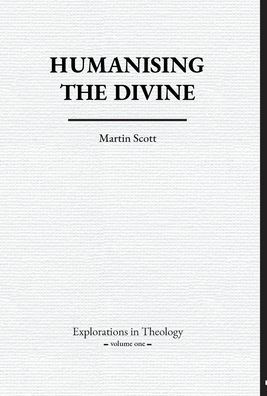I’m planning on revising, re-jigging, re-doing… whatever the right word is – I am planning on looking again at eschatology. Not sure how different it will be from the series I recorded some 14 years ago (https://3generations.eu/eschatology-podcasts); probably slightly nuanced and perhaps from occasional different angles but I would expect pretty much along the same lines.
Like most subjects how one reads the Scriptures will determine what one draws out of it, so that is probably where I will start. If the texts (and by that I mean OT texts in the main) are predictions then we will be looking for fulfilments that are literal; if the texts are not predictions by definition they will not have been fulfilled (literally) but if we continue to read them as predictions, guess what, we will be looking for the fulfilment any day soon! Newspaper in one hand, imagination on speed and hey-ho conspiracy theories will prosper!
Here are a few of my foundational approaches:
Prophecy is not history written in advance. The history book can tell me what took place in the (say) 14th Century, but prophecy is not the unfolding of what is about to take place in the 21st Century in the sense of a set of events. Scripture was not written to us, but it is written for us. We are not Jews with prophets giving us a hope for the end of the Babylonic exile; and prophets writing about that hope are not writing to us, but the words remain with power for us.
Prophecy is not always fulfilled. This is a big one to grasp. If within Scripture (and within the same books at times) there is prophecy that reads as a prediction and then it is also recorded that it did not take place this must make us cautious about insisting on a literal fulfilment. Jesus is the centre, not the periphery of prophecy. Even when there is a fulfilment (the young woman will be with child in Isaiah’s day) the fulfilment is through a young submissive woman in the opening pages of the Gospels.
Prophecy releases hope (it is promise not prediction) and the hope is often expressed in the current context: the worship of Yahweh in Egypt and Syria is a case in point (Ezek.19). What a hope! The two powerful nations that sandwiched Israel in the ‘fertile crescent’ taking not only the worship of Israel’s God but being given titles that were given to Israel by God was a hope that would have expanded all vision… Literal fulfilment? Or to be fulfilled when all nations acknowledge the God of Israel? By all means use the Scripture to pray for Egypt and Syria; by all means prophesy a great visitation in those lands… but to hold it as ‘therefore this will take place’. Promise, promise, promise. Promise goes far beyond a literal fulfilment (hence again the point that all the promises of God are in Jesus). As I comment in my article on Galatians (https://3generations.eu/PeediePress/media/documents/Galatians%20Vol%201.pdf) the coming of Jesus changes everything – so radically that to re-establish what once defined transgression would be to become a transgressor!
And I think we have to connect the end (eschatology) to the beginning (protology). The project that was inaugurated with the words ‘In the beginning God…’ will be completed by God. Burning up, throwing on the scrap heap is not an option. Israel called under her oppression to God; Pharaoh that oppressor. Now the whole of creation calls out under her oppression; humanity the oppressor. But God hears, not in order to destroy but to liberate.
And maybe I have to give some consideration that we have so many words before us in the 66 books that I work with as canon but maybe… If with a whole story line of hope there were many in Jesus’ day who studied the Scriptures but missed the day of visitation, perhaps not just those dispensationalists who work hard (if there was a Greek word behind that term I would translate it as ‘manipulate’), but perhaps the level headed people such as the current writer might also miss what is going on; maybe there will be some twists and it is not as we think. There remains some common hopes – resurrection of the dead; renewed creation; God changing address – but as for the process: ah well I will write and record but in it all hope that is firm and cautious with any series of events.



